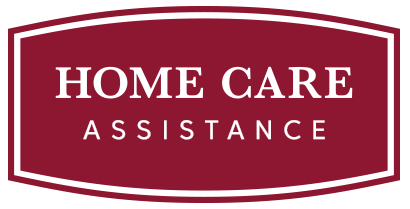Understanding PCOS & Its Effects on Older Women

Though both senior men and women may be susceptible to most health conditions, some disorders are specific to only one gender. One of the unique conditions that only affect women is called polycystic ovary syndrome (PCOS). To give you and your elderly loved one a better understanding of PCOS, here are the condition’s symptoms, its additional risks for aging women, and what your loved one can do to stay healthy if she develops the disorder.
What Is PCOS?
PCOS is an endocrine disorder that causes the ovaries to produce high levels of androgen. As a result, small cysts develop in the area surrounding the ovaries, and the body becomes more resistant to insulin. PCOS is normally diagnosed in younger women, who develop infertility, facial hair, skin problems, and amenorrhea as a result of the hormones. Recent studies have focused on the long-term effects of the syndrome and what changes it brings for women as they enter menopause and their senior years.
Aging adults can face a variety of health challenges. Some seniors only require help with a few daily tasks so they can maintain their independence. However, those living with serious illnesses may need more extensive assistance. Luckily, there is professional live-in care Dallas, TX, seniors can rely on. Home can be a safer and more comfortable place for your loved one to live with the help of an expertly trained and dedicated live-in caregiver.
How Does Increased Age Affect Hormones?
As women transition through menopause, their estrogen levels slowly decrease along with their fertility. In women with PCOS, high adrenal and androgen levels can extend fertility. Periods become more regular and women have an increased chance of getting pregnant as they age. The long-term exposure to the male hormones manifests physically through excessive facial hair, hair loss, a decrease in hot flashes, fewer episodes of sweating, and an increase in male-pattern hair growth.
What Risks Do Seniors with PCOS Face?
Elderly women with PCOS are at higher risk for developing cardiovascular disease, obesity, and type 2 diabetes. Cardiovascular disease develops in women with PCOS more often due to an increase in inflammation and unfavorable lipid profiles. Obesity often develops due to insulin resistance, which makes women crave carbohydrates and decreases their ability to use those carbohydrates properly. Obese women with PCOS have been found to have a fivefold increased risk of developing type 2 diabetes, putting them at risk for kidney disease and nerve disorders as well.
There are a variety of age-related health conditions that can make it more challenging for seniors to live independently. However, many of the challenges they face can be easier to manage if their families opt for professional home care service. Dallas families can rely on expertly trained caregivers to keep their loved ones safe and comfortable while aging in place.
What Can Women with PCOS Do to Boost Their Health?
With a healthy diet and exercise, your loved one can lose weight to relieve her PCOS symptoms. Just a 5 to 10 percent reduction in weight has been shown to reduce insulin resistance and alleviate reproductive issues. A diet rich in anti-inflammatory foods, such as those high in fiber and omega-3 fatty acids, can reduce the risk of developing cardiovascular conditions. Additionally, taking select supplements, such as myo-inositol and magnesium, may alleviate the symptoms and enhance quality of life. Check with a doctor before your loved one takes any supplements.
Seniors who want to remain healthy as they age can benefit in a variety of ways when they receive professional elder care. Dallas, TX, Home Care Assistance is here to help your loved one accomplish daily tasks, prevent illness, and focus on living a healthier and more fulfilling life. To create a customized care plan for your loved one, call us at (214) 363-3400 today.

